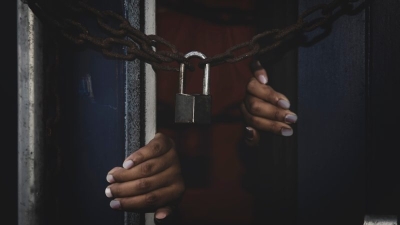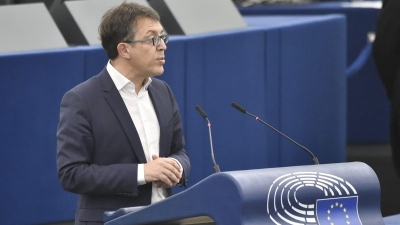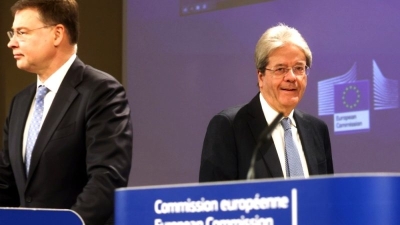Maltese society divided over arrest of woman who had abortion

The arrest of a Maltese woman for having a medical abortion at home has divided Maltese society, with pro-choice groups calling for urgent changes to the law and staging protests, and the prime minister declaring it makes him feel ‘uncomfortable’.
Malta has a total ban on abortions, even in the case of rape, incest, or if the woman’s life is in danger. The unnamed woman reportedly took abortion pills, likely imported from abroad as they are illegal in the country, and had a medical abortion. She was subsequently arrested and given a conditional discharge.
Details from the court sentence note that she was in an abusive relationship and was reported to the authorities by her abuser. At the time of her arrest, abrasions were found on her body, suggesting she had been assaulted and she was suffering from mental health conditions.
The court said that while her situation does not excuse her actions, as she could have sought help to address her emotional and mental state instead of opting for the “extreme measure” she chose, adding that such cases should be treated with “extreme sensitivity” at every level. The judge decided not to sentence her because she already had a young son and no previous charges against her.
“Access to safe abortion is recognised worldwide as a basic part of women’s healthcare and rights. That women are prosecuted for it locally should put us all to shame,” said the Women’s Rights Foundation. The organisation provided legal assistance to the woman but said it should never have gotten to this stage.
“No woman should ever be prosecuted for terminating her own pregnancy. Decriminalise abortion now,” added Doctors for Choice Malta, another organisation fighting against the total ban on abortions.
Meanwhile, Doctors for Life, a ‘pro-life’ group, wrote that the courts had sent a clear message that protecting life should be upheld.
The group added that “pressures that have led this woman to terminate the life of her unborn child must not be underestimated. However, whether human life is wanted or not is not the criterion by which its value is given.”
They said a three-year-old child might be biologically independent of the mother but has still not completed development, and there are laws to protect that child. Therefore, the laws to protect those younger than three (meaning a fetus) should remain in place.
Malta’s laws on abortion mean that termination or any action resulting in a termination cannot be carried out, even if the woman’s life is in danger. Doing so could result in criminal charges and prison for the woman and the doctor, with the latter being struck off.
The pro-life lobby has long argued that laws should not be changed because no woman has ever died from pregnancy complications that could have been prevented by abortion- something subject to disagreement- and no woman has ever been arrested or charged for having an abortion.
In the summer of 2022, Malta’s abortion laws made headlines when an American woman holidaying in the country started experiencing a miscarriage which put her at risk of sepsis. Doctors refused to terminate the pregnancy and even tried to stand in the way of her medical evacuation by refusing to hand over important medical documents. Eventually, she was evacuated to Spain, where the termination took place.
With several thousand Maltese women seeking abortions abroad or using pills illegally every year, combined with pressure following the high-profile case, the government sought to change the law.
As a result, the Maltese Socialist Party proposed amendments which would allow life-saving procedures to be carried out to save the mother, even if it resulted in the death of the fetus.
The law passed a second reading in parliament in December, and it is set to be voted on again this year, although a date has yet to be set.
However, the changes would still not allow the procedure in cases of rape, incest, non-threatening health issues or similar, much to the chagrin of local women’s rights activists.
In his recent State of the Nation address, Prime Minister Robert Abela expressed concern over the woman’s arrest and said it should never have happened.
Over the years, so-called ‘pro-life’ groups have called for the laws to be tightened, even requesting pregnancy tests for women travelling abroad or prosecuting those who leave the country, have an abortion abroad and then return.
The topic of abortion in Malta remains highly divisive as the country is predominantly Catholic, with very strong ties to the Vatican. Those calling for decriminalisation in full, or even slight amendments to the law, are met with fierce resistance, including online abuse, harassment, and even physical harassment in public. Even those who write about having abortions or come out in favour of loosening laws hide their names for fear of retribution and losing their jobs.
As such, politicians have generally shied away from the topic, with the ruling Socialists being the first in the country’s history to push for change.
At an EU level, in 2022, MEPs urged that abortion should be included in the EU Charter of Fundamental Rights following a vote that saw 324 agree, 155 against and 38 abstentions. They called on EU member states to decriminalise abortion and guarantee access to all women and girls.
(Alice Taylor | EURACTIV.com)
Read more with EURACTIV




